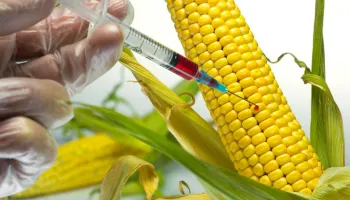
In a country where the average citizen is battling inflation, food insecurity, and declining health standards, a silent war is being waged—not with guns or bombs, but through food.
The question is no longer far-fetched: Is the government trying to kill us deliberately? If not, then why are we still debating something as fundamental as the labeling of genetically modified (GMO) foods?
This isn’t just about conspiracy theories. This is about accountability, transparency, and the right to know what we’re consuming.
The Hidden Ingredients on Your Plate
Genetically modified organisms (GMOs) are foods that have been altered at the genetic level—often to increase yield, resist pests, or tolerate herbicides. Supporters of GMO technology claim it’s a breakthrough for food security, especially in developing nations. But critics argue that the long-term health effects are not fully understood, and the risks—however uncertain—should be clearly communicated to the public.
Here’s where things become unsettling: Many governments, including ours, do not mandate clear labeling of GMO products. In some places, even identifying a food item as “non-GMO” is treated with suspicion. If the science is so settled, if these products are indeed safe, why not label them proudly?
The Right to Choose Is Being Denied
Imagine buying a car without knowing if it has brakes. That’s what it feels like to many Nigerians and concerned citizens globally—shopping for food without knowing whether it’s been genetically altered.
Labeling GMO products doesn’t mean banning them. It means giving people a choice. It means respecting their right to decide what goes into their bodies. Refusing to offer that choice smacks of something more insidious—control, exploitation, or at worst, deliberate harm.
GMO Foods: Health First—or Profit First?
There’s another layer to this issue—big agribusiness and government complicity. Corporations and powerful figures who profit from GMO seeds and chemicals wield immense influence. They fund research, lobby policymakers, and often play a direct role in shaping agricultural policy across the globe.
One prominent example is Bill Gates, the billionaire philanthropist and founder of the Bill & Melinda Gates Foundation. While his foundation has poured billions into health and agricultural programs in Africa, it is also one of the biggest sponsors of GMO research and deployment. Gates has publicly backed genetically engineered crops as a solution to hunger and low productivity in Africa. Through partnerships with entities like AGRA (Alliance for a Green Revolution in Africa) and collaborations with Monsanto (now Bayer) and other biotech firms, GMO seeds have been promoted to smallholder farmers in countries like Nigeria.
READ ALSO: GMO: How Nigeria’s health system is failing to address concerns part 1
In Nigeria, Gates’ influence is seen in initiatives that push biotech farming methods under the guise of innovation and food security. For instance, the Nigerian Biosafety Management Agency (NBMA), which is responsible for regulating GMOs, has been criticized for being too lenient—issuing approvals for GMO crops like Bt cotton and GMO maize without full transparency or public consultation.
When one man and his foundation can influence what millions eat, without their full understanding or consent, it raises a serious question: is this philanthropy—or is it unchecked power steering public policy toward private interests?
When citizens raise concerns about cancer, infertility, allergies, or antibiotic resistance potentially linked to GMOs, they’re often dismissed. But the truth is, they’re asking the right questions. And they’re not getting answers—they’re getting silence, spin, and statistics
What Silence Suggests
When a government remains quiet about GMO labeling, when it silences scientists and ignores public opinion, it sends a dangerous message: Your health is secondary to economic interest.
And that brings us back to the haunting question: Is the government trying to kill us deliberately? Maybe not literally—but by neglecting our health, by refusing to inform and empower us, by serving corporate interests before human interests—they might as well be.
A Call to Action
We need food policies rooted in transparency, not secrecy. We need to know what’s in our food. We need clear GMO labels—visible, honest, and mandatory.
If the government won’t protect us, we must protect ourselves. Push for food justice. Demand labeling. Ask questions. And never stop holding those in power accountable.
Because your life—and the lives of those you love—depend on it.






